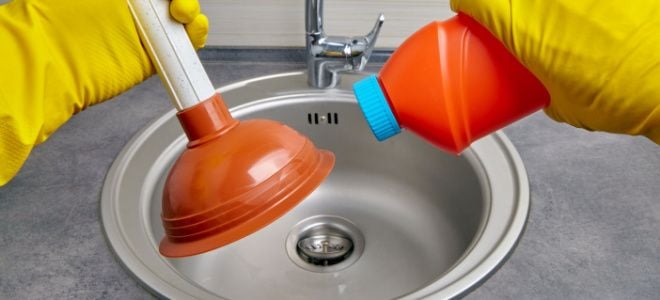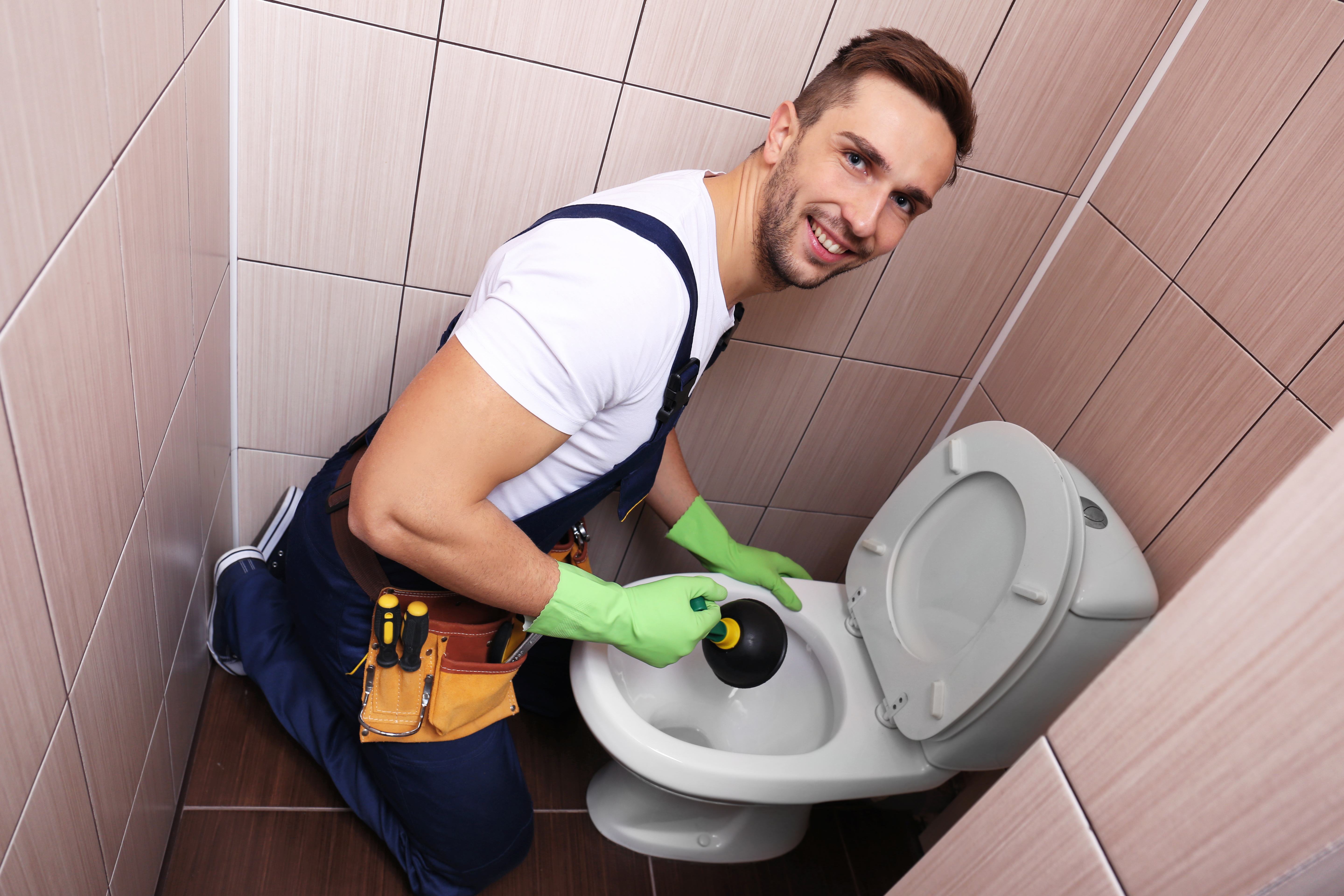What are your concepts about How to Use a Plunger to Unclog a Toilet or Drain?

Introduction
Proper upkeep of family drains is important for avoiding obstructions and making certain smooth water flow. One of the trick tools in every homeowner's toolkit is the bettor, alongside numerous drain cleansers created to tackle persistent blockages effectively. This post explores exactly how to use plungers and drainpipe cleaners properly to keep your drains pipes moving freely.
Area 1: Comprehending Bettors
Types of Plungers
There are a number of sorts of bettors available, each developed for different kinds of drains and blocks. One of the most typical types include mug bettors, flange plungers, and accordion bettors.
Just How Plungers Job
Plungers work with the principle of creating stress and suction to dislodge obstructions. When appropriately applied over a drainpipe, they create a vacuum cleaner that can take out debris or separate blockages.
Selecting the Right Bettor
Selecting the ideal bettor depends on the kind of drainpipe and the nature of the clog. Cup bettors are perfect for sinks and bathtubs, while flange bettors are much better suited for toilets because of their style.
Usual Blunders with Bettors
Avoiding these mistakes guarantees efficient plunging: incorrect seal around the drain, inadequate force, and not clearing bordering debris.
Area 2: Utilizing Plungers Effectively
Prep work
Before diving, ensure the bettor covers the drainpipe totally and forms a limited seal. Clear any visible particles around the drain opening.
Method
Beginning with gentle plunging motions to develop suction. Rise stress slowly, making use of a constant rhythm. Repeat as necessary up until the drain clears.
Repairing Tips
If plunging does not work, attempt changing the seal, using petroleum jelly for a far better seal, or using a various type of plunger.
Area 3: Understanding Drain Cleaning Company
Types of Drain Cleaning Company
Drain cleaners can be chemical or chemical. Chemical cleansers make use of strong chemicals to dissolve blockages, while chemical cleansers make use of all-natural enzymes to break down organic matter.
Just How Drain Cleaning Company Work
Chemical cleansers react with blockages to liquify them, while enzymatic cleaners break down natural products like hair and grease without harming pipelines.
Security Considerations
Constantly use gloves and eye defense when utilizing chemical drain cleansers. Guarantee adequate air flow and follow maker instructions carefully.
Eco-Friendly Alternatives
Take into consideration utilizing vinegar and cooking soda or enzyme-based cleansers for environmentally friendly alternatives that are safer for pipelines and the setting.
Section 4: Utilizing Drainpipe Cleaners Properly
Application Techniques
Put chemical cleansers directly into the drainpipe opening. Enable them to benefit the suggested time before purging with hot water. Chemical cleansers ought to rest overnight.
Safety measures
Stay clear of blending different kinds of cleaners, as this can generate toxic fumes. Never use chemical cleaners combined with a bettor, as spilling can take place.
Handling Stubborn Clogs
For persistent clogs, consider using a plumbing serpent or calling a specialist plumbing professional to stop damages to pipes.
Conclusion
In conclusion, recognizing just how to utilize plungers and drainpipe cleaners efficiently is important for keeping healthy plumbing systems. By selecting the right devices and methods, homeowners can take on minor obstructions and prevent significant plumbing problems down the line.
How To Properly Use A Plumbing Snake To Clear Drains
When any drain clogs in our home arise, we tend to gravitate toward the plunger and little else. In cases where the plunger and its vacuum-created pressure are not able to clear clogs, many immediately move to harmful chemicals or simply call their plumber to fix the issue.
we’re happy to help with all drain cleaning needs and concerns. This includes informing you on a few other home remedies you may have at your disposal for minor to moderate clogs, one of which is the use of a plumbing snake. Many people have never used one of these before – let’s go over the steps to take when your drain clogs and you have a plumbing snake available.
Attempt Plunger Use
The first step here, as we noted above, should indeed be to grab your plunger when you notice a drain clog and attempt to resolve it this way. If you’re unsure how to use a particular type of plunger, our plumbers can answer any questions you have. If this doesn’t do the trick, however, you move on to the snake.
Locate And Prepare Snake
A plumbing snake is a metal or plastic device that’s generally about a quarter of an inch thick. It’s design with significant extensions, meant to reach down into your clogged drain and push the clog out. Snakes also contain drain augers that will latch onto and push stubborn blockages.
If your plunger doesn’t clear a clog, locate your snake and bring it to the drain in question. We also recommend keeping a bucket nearby to collect the clog once you pull it out, plus we’d advise wearing goggles and possibly protective gloves.
Feed Snake
Once you’re ready to go, feed the snake slowly down the drain, using the crank device it comes with to keep it moving until it finds the clog. Once this happens, much of the clog will be latched onto the coil so you can pull it out, while the rest will simply break up and flow downward.
Detach Debris
Remove the snake slowly from the drain, and once you’ve done so, pick off any debris that’s stuck to the coil. This is another area where wearing gloves is a must.
Flush Drain
Finally, take a few minutes to ensure the snake has done its job correctly. If you’ve been using it on a toilet, flush the toilet a couple times and make sure everything flows well. If you’ve used it on a different drain, flush it with some room temperature water.
https://www.mybuddytheplumber.com/blog/how-to-properly-use-a-plumbing-snake-to-clear-drains/

Application Techniques
Put chemical cleansers directly into the drainpipe opening. Enable them to benefit the suggested time before purging with hot water. Chemical cleansers ought to rest overnight.
Safety measures
Stay clear of blending different kinds of cleaners, as this can generate toxic fumes. Never use chemical cleaners combined with a bettor, as spilling can take place.
Handling Stubborn Clogs
For persistent clogs, consider using a plumbing serpent or calling a specialist plumbing professional to stop damages to pipes.
Conclusion
In conclusion, recognizing just how to utilize plungers and drainpipe cleaners efficiently is important for keeping healthy plumbing systems. By selecting the right devices and methods, homeowners can take on minor obstructions and prevent significant plumbing problems down the line.
How To Properly Use A Plumbing Snake To Clear Drains
When any drain clogs in our home arise, we tend to gravitate toward the plunger and little else. In cases where the plunger and its vacuum-created pressure are not able to clear clogs, many immediately move to harmful chemicals or simply call their plumber to fix the issue.
we’re happy to help with all drain cleaning needs and concerns. This includes informing you on a few other home remedies you may have at your disposal for minor to moderate clogs, one of which is the use of a plumbing snake. Many people have never used one of these before – let’s go over the steps to take when your drain clogs and you have a plumbing snake available.
Attempt Plunger Use
The first step here, as we noted above, should indeed be to grab your plunger when you notice a drain clog and attempt to resolve it this way. If you’re unsure how to use a particular type of plunger, our plumbers can answer any questions you have. If this doesn’t do the trick, however, you move on to the snake.
Locate And Prepare Snake
A plumbing snake is a metal or plastic device that’s generally about a quarter of an inch thick. It’s design with significant extensions, meant to reach down into your clogged drain and push the clog out. Snakes also contain drain augers that will latch onto and push stubborn blockages.
If your plunger doesn’t clear a clog, locate your snake and bring it to the drain in question. We also recommend keeping a bucket nearby to collect the clog once you pull it out, plus we’d advise wearing goggles and possibly protective gloves.
Feed Snake
Once you’re ready to go, feed the snake slowly down the drain, using the crank device it comes with to keep it moving until it finds the clog. Once this happens, much of the clog will be latched onto the coil so you can pull it out, while the rest will simply break up and flow downward.
Detach Debris
Remove the snake slowly from the drain, and once you’ve done so, pick off any debris that’s stuck to the coil. This is another area where wearing gloves is a must.
Flush Drain
Finally, take a few minutes to ensure the snake has done its job correctly. If you’ve been using it on a toilet, flush the toilet a couple times and make sure everything flows well. If you’ve used it on a different drain, flush it with some room temperature water.
https://www.mybuddytheplumber.com/blog/how-to-properly-use-a-plumbing-snake-to-clear-drains/

Hopefully you enjoyed reading our post on How to Use a Plunger to Unclog a Toilet or Drain. Thanks for finding the time to browse our article post. Do you know about someone else who is fascinated by the subject? Take a moment to promote it. We love reading our article about How To Use Your Toilet Plunger Correctly in 5 Easy Steps.
View